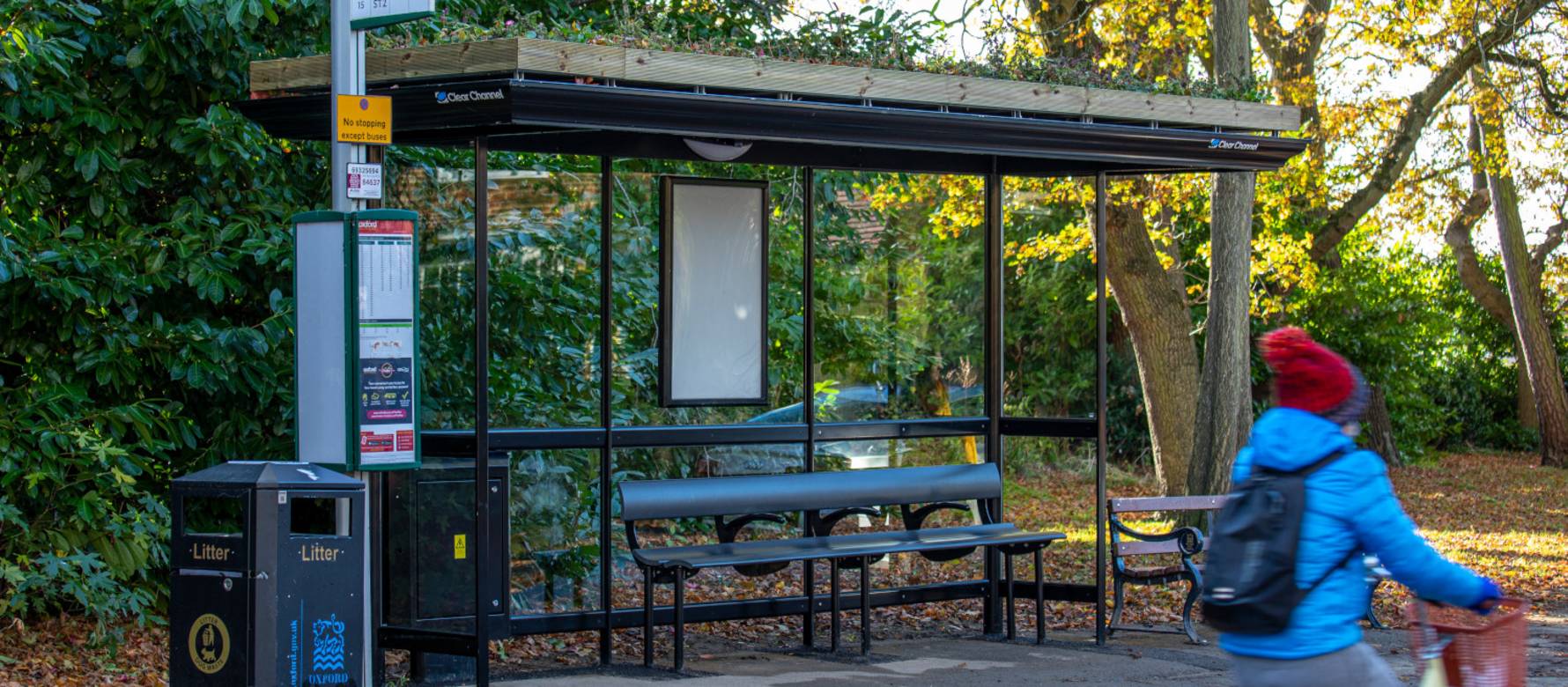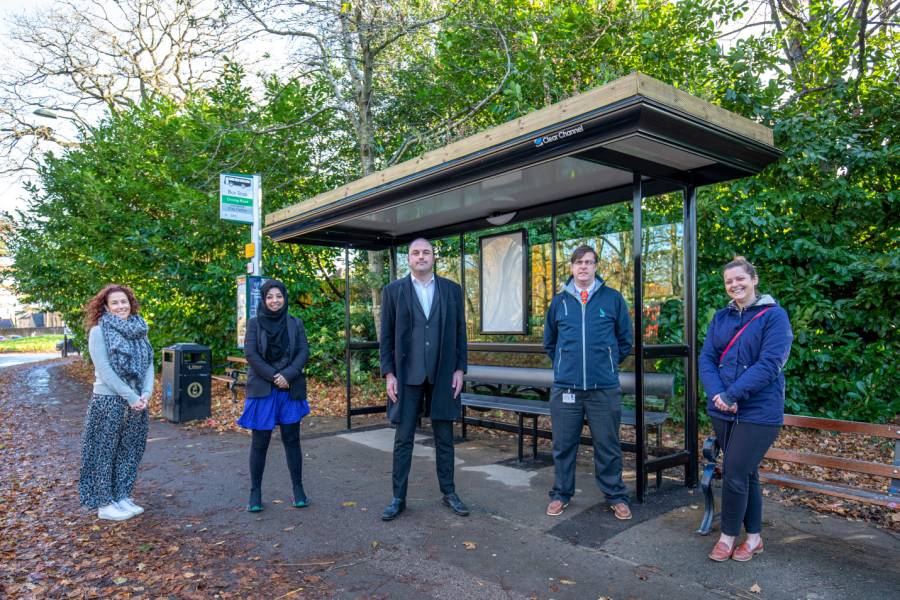Oxford gets its first Bee Bus Stop
03 Dec 2021 / News
Oxford’s first Living Roof bus shelter has been installed in East Oxford, as part of work to support biodiversity across the city and enhance local communities.
Oxford’s first Living Roof bus shelter has been installed in East Oxford, as part of work to support biodiversity across the city and enhance local communities.
The Living Roof bus shelter - also known as a ‘Bee Bus Stop’- is located on Morrell Avenue, is part of work to support native biodiversity, and to help create healthier local communities. The location was selected by Oxford City Council, and it was designed and installed by partner Bauer Media Outdoor, who will be maintaining it for the entirety of its life-span, at no cost to the taxpayer.
Oxford is the fifth city to install ‘Bee Bus Stops’, alongside Cardiff, Glasgow, Brighton and Leicester. Bauer Media Outdoor has made a first-of-its-kind commitment to installing 2000 ‘Bee Bus Stops’ to increase biodiversity across UK cities by 2030, with the long-term aspiration to make these the standard across Europe.
Will Ramage, Bauer Media Outdoor’s Co-Managing Director, said: “It’s wonderful to see another of our ‘Bee Bus Stops’ being installed in Oxford. Even in an already leafy and green city, our Living Roofs can bring real, tangible benefits. I’m looking forward to seeing more of them in the most urban and densely populated corners of the city, where they would be valued most.”
The Living Roof product has been assessed and verified in conjunction with The Royal Society of Wildlife Trusts, whose independent third-party ecologists have afforded it the highest significance category under Natural England’s Biodiversity Metric 3.0 of “High strategic significance”, and would make a significant contribution to delivering Biodiversity Net Gain.
Head over to our Living Roofs Page to find out more.

Pictured (left to right): Louise Stubbings (Partnership Director, Bauer Media Outdoor), Councillor Lubna Arshad, (Cabinet Member for Parks and Waste Reduction, Oxford City Council), Councillor Tom Hayes, (, Cabinet Member for Green Transport and Zero Carbon Oxford, Oxford City Council) Caspar Morris (Enforcement Team Leader, ODS) and Sophie Hearn (ODS, Head of Infrastructure ODS)
Improving biodiversity is also a key part of the Council’s work to achieve a Zero Carbon Oxford by 2040 through the work of the Zero Carbon Oxford Partnership. In 2019, Oxford City Council unanimously declared a climate emergency and provided for a Citizens’ Assembly on Climate Change. Biodiversity was a key theme considered by the Assembly. Assembly Members were positive about creating more biodiversity and green space around Oxford. They found that protecting and enhancing biodiversity and “greening” the city was seen by Assembly Members as a key route to engagement with communities and individuals.
Councillor Lubna Arshad, Cabinet Member for Parks and Waste Reduction, said: “I am delighted that Oxford now has its first Living Roof bus shelter in East Oxford. Supporting local biodiversity and habitats can happen on a large scale or a small one, and these bus shelters are a clear example of combining urban living with nature and local communities. I am looking forward to seeing shelter bloom in the coming months.”
The work to install the new bus shelter roof was funded and organised by ODS (Oxford Direct Services), as part of their work to support biodiversity and manage street furniture across the city.
Sophie Hearn, Head of Infrastructure, ODS, said: “ODS is pleased to have been able to play a key role in delivering Oxford’s first living roof bus shelter. We are proud to have played a part in enhancing the environment and to contributing toward a zero-carbon Oxford. We look forward to seeing how the shelter copes through the seasons. This could be the start of something very good.”
SHARE POST
PRESS ENQUIRIES





